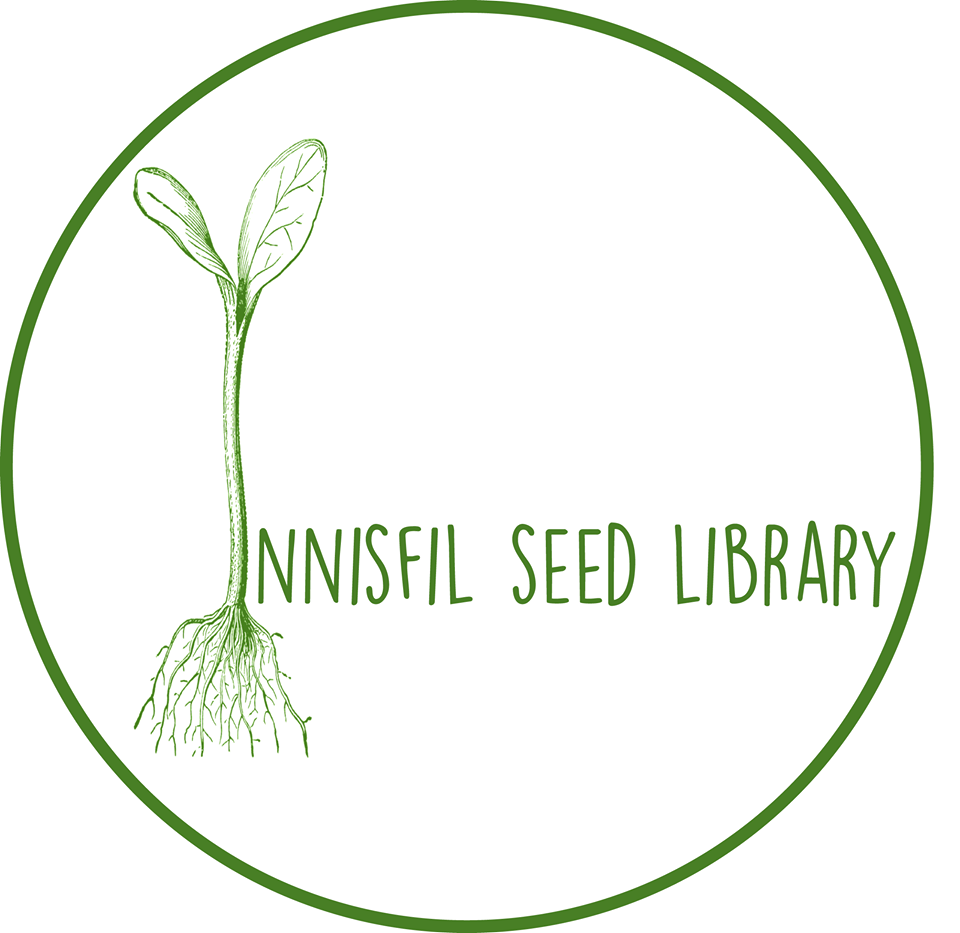
FAQ.
Our mission
Distribute seeds to our community and educate our residents about how to grow, save and return some seeds to replenish the seed library.
Where is the Innisfil Seed Library?
The Innisfil Seed Library has two permanent locations: Cookstown and Lakeshore branches of the Innisfil ideaLAB & Library. During the growing season, the seed library may pop up at events or other temporary locations.
How do I borrow seeds?
Visit the Borrow Seeds page for the latest information about when and how to borrow seeds to grow.
Which seeds are available?
The seed stock of vegetables, herbs and flowers is ever-changing as it depends on what is donated from the community each season. The goal is to offer popular home garden seeds including native species, open pollinated and heirloom varieties.
Where do the seeds come from?
Seed “borrowers” are encouraged to donate harvested seeds back to the seed library at the end of the season. Leftover commercial seeds are also donated by community members. Seeds are packaged and prepared by volunteers for distribution through the lending program.
How do I grow and save seeds?
Visit the Resources page for helpful instructions for growing and saving most seeds.
How do I donate harvested seeds?
Gardeners are encouraged to harvest and donate open-pollinated, nonhybrid vegetable, herb and flower seeds. Heirloom seed donations are greatly appreciated to keep these old varieties alive! Be sure seeds are mature and dry before donating, and check for seed viability. Package, seal and label donations with seed name, variety if known, harvest year and city. Visit Donate Seeds for more information and instructions about how to donate seeds.
How and when did the Innisfil Seed Library get established?
Find out about the history of the Innisfil Seed Library here.
Why should I save seeds?
People have collected and saved seeds for thousands of years; however, over the last century a great deal of this knowledge and biodiversity has been lost. Gardeners and farmers have become reliant on large seed companies for their crops which in turn significantly shrinks the diversity of plants and food. Growing and saving seeds:
Helps cultivate and maintain biodiversity
Preserves unique varieties and cultural heritage
Develops locally adapted seed to their environment
Provides a nutritious, flavourful diet
Helps gain local food security
Teaches new skills
Attracts pollinators
Removes dependency on large seed companies
Saves money
Benefits communities through sharing, learning and self-sufficiency
I want to start a seed library in my community. Can I get some guidance?
Yes! We love to share our experience. Get in touch.
How do I get in touch with more questions?
Get in touch anytime by email at Contact or on social media.

